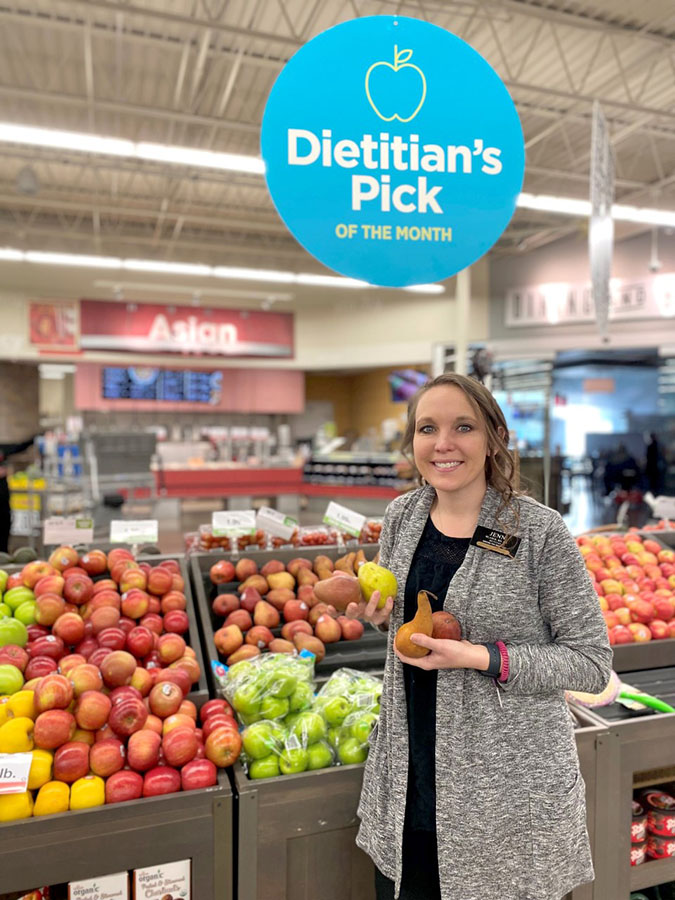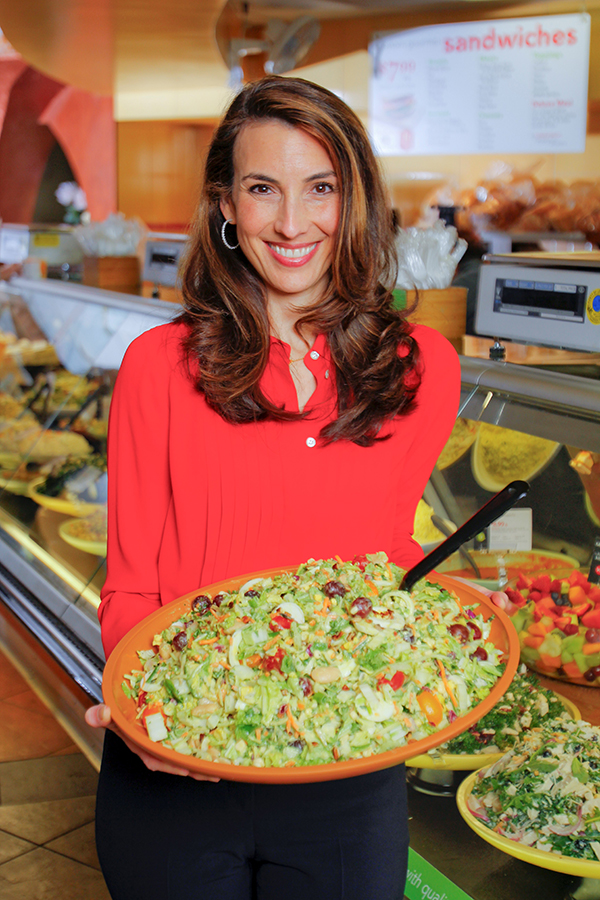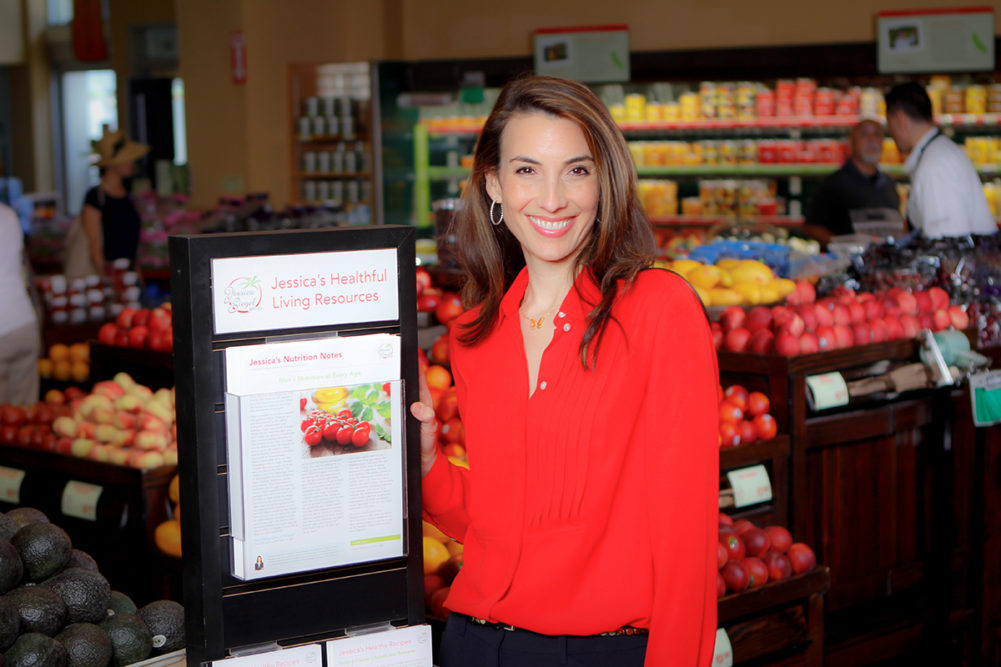The heightened awareness of mental health in recent years has impacted most corners of the American culture and economy, and the fresh food industry is no different.
In fact, new scientific discoveries are making it increasingly clear: many fresh foods play a crucial role in combatting depression and other mental health problems.
The stress of the past two years from the COVID-19 pandemic has been significant and pervasive, and it comes as no surprise that mental health stress has increased as much as physical stress, said Dr. Daniel Fick, chief medical officer for West Des Moines, Iowa-based Hy-Vee.
“With all types of health stress and concerns our society faces, prevention is critical,” Fick said. “Having a healthy lifestyle is as important to one’s mental health as it is their physical health.”
Diet can play a critical role in that healthier lifestyle. Any diet that incorporates whole, plant-based foods, lean protein or seafood with omega-3 fats provides important nutrients that helps overall health – physically and mentally, said Elisa Sloss, Hy-Vee’s vice president of HealthMarkets and dietitians.
 Image courtesy of Hy-Vee
Image courtesy of Hy-Vee
“Studies have shown that diets that are more traditional or less processed, like the Mediterranean diet, have been linked to lower risks of depression,” she added. “High-fiber foods like fresh fruits and vegetables, including dark leafy greens, are always dietitian recommended. High-fiber grains, nuts or seeds also should be included in an overall balanced diet.”
There isn’t one particular food that can influence mental health, said Jessica Siegel, registered dietitian for Encino, Calif.-based Gelson’s.
Instead, it’s an overall eating pattern that can impact health, be it mental or physical. And Siegel agrees with Sloss that the best eating pattern for robust mental health is the Mediterranean Diet, which emphasizes healthy fats mainly from extra virgin first cold press olive oil, plenty of fresh vegetables and fruits, vegetarian protein sources for two meals a day, whole intact grains, and other gut-friendly foods that can influence mood and brain function.
All fresh produce is encouraged on the Mediterranean Diet, especially leafy greens, tomatoes, aromatics, herbs, berries, and avocados. Seafood is eaten up to four days a week on the diet, and since omega-3 fats are particularly important for mental health, fatty fish such as salmon, whitefish, sablefish, seabass, trout, mussels, and halibut are some of Gelson’s stand-out offerings.
 Image courtesy of Gelson’s
Image courtesy of Gelson’s
The big picture
Hy-Vee’s dietitian team promotes whole body health. The retailer counsels its customers to look at all aspects of their health and how their diet can help promote their overall wellbeing.
“People process stress or emotions differently,” Sloss said. “Some may react to stress by overeating, or sometimes they don’t eat enough. We provide education and guidance to teach customers mindful eating practices. We also emphasize how important it is to make time for physical activity along with relaxation.”
Increasingly, scientists are finding a link between gut health and mental health, Sloss said. The gut produces 95% of the body’s serotonin, a neurotransmitter involved in many processes in the body that affects overall emotional health. Serotonin affects how you sleep, your appetite and mood.
There is “two-way communication between the gut and the brain,” as Siegel puts it. What we eat really can impact mood and cognitive function directly, and the Mediterranean Diet naturally incorporates foods that support the microbiome (the collective genome of the microscopic organisms living in the digestive tract of the human body).
“Fermented foods, such as yogurt, are typically eaten daily and can introduce a variety of good bacteria to help support the gut microbiome,” Siegel said. “Additionally, fiber-rich vegetables, fruits, whole grains, and beans that are daily parts of this eating pattern help provide nourishment to the gut bacteria that can keep the microbiome thriving.”
Grass-fed yogurt, kefir and cultured cheeses are other great foods for mental health, Siegel said. Pickled vegetables, such as kimchi, sauerkraut, pickles, and olives are gut-friendly foods that can also support it.
Since there’s not yet enough research to establish the direct connection between any particular food and mental health, Gelson’s doesn’t target foods for their mental health-boosting attributes, Siegel said.
However, the retailer does offer plenty of delicious foods that can be incorporated into an eating pattern that supports mental health.
“Our outstanding produce department offers the highest quality berries, leafy greens, fresh herbs, avocados, nuts and seeds, and our incredible seafood department offers the freshest fish delivered six days a week,” Siegel said. “Our regular deli stocks a world-class variety of aged and cultured cheeses, omega-3-rich eggs, gourmet olives, miso, and grass-fed yogurt, and our bountiful salad bars offer a wide variety of fresh foods that can be combined to create mood-boosting meals that include beans for plant protein, kale, arugula, spinach, sunflower seeds, avocado, and extra virgin olive oil.”

